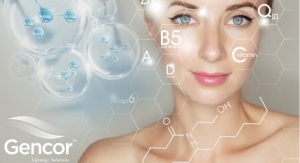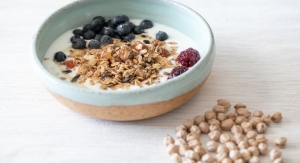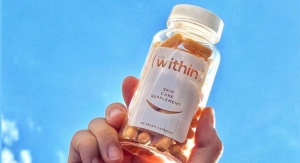06.03.13
Innova Market Insights has identified the top five health claims for functional foods and drinks marketed to older consumers. Health optimization has become an increasing focus for an aging population, driven by rising consumer understanding of the role of a healthy diet in extending the active years. This is being reflected in promotion of the idea of healthy aging or aging well.
“The most popular healthy-aging-related claims for food and drink products concern digestive/gut health, energy/alertness, heart health and immune health,” said Robin Wyers, chief editor at Innova Market Insights. “These have general appeal among the wider population. But there are other, more specific, opportunities in age-related concerns that are currently featured much less often in product claims, including brain/cognitive health, bone health, skin health, joint health and eye health.”
Tracked product launches using eye health claims doubled in the last five-year period, as recorded by Innova Market Insights in 2012. However, they still account for just less than 3% of launches featuring an active health claim (i.e., food plus) of any kind, so this sector shows significant potential for future growth.
Omega 3 fatty acids also featured strongly for brain or cognitive health. This area of interest is likely to continue to expand following European Food Safety Authority (EFSA) approval of a claim relating to DHA and maintenance of normal brain function. While about 60% of European launches using this claim are currently for baby foods, there is a clear opportunity for a move into new categories, specifically healthy aging. A range of other ingredients claimed to be beneficial in the area of cognitive health include B vitamins, CoQ10, ginkgo biloba, polyphenols, acetyl L-carnitine and green tea, but there are few specific references to aging to date, with labeling generally simply highlighting their use and relying on consumer awareness of the benefits.
“The most popular healthy-aging-related claims for food and drink products concern digestive/gut health, energy/alertness, heart health and immune health,” said Robin Wyers, chief editor at Innova Market Insights. “These have general appeal among the wider population. But there are other, more specific, opportunities in age-related concerns that are currently featured much less often in product claims, including brain/cognitive health, bone health, skin health, joint health and eye health.”
Tracked product launches using eye health claims doubled in the last five-year period, as recorded by Innova Market Insights in 2012. However, they still account for just less than 3% of launches featuring an active health claim (i.e., food plus) of any kind, so this sector shows significant potential for future growth.
Omega 3 fatty acids also featured strongly for brain or cognitive health. This area of interest is likely to continue to expand following European Food Safety Authority (EFSA) approval of a claim relating to DHA and maintenance of normal brain function. While about 60% of European launches using this claim are currently for baby foods, there is a clear opportunity for a move into new categories, specifically healthy aging. A range of other ingredients claimed to be beneficial in the area of cognitive health include B vitamins, CoQ10, ginkgo biloba, polyphenols, acetyl L-carnitine and green tea, but there are few specific references to aging to date, with labeling generally simply highlighting their use and relying on consumer awareness of the benefits.



























